”
As a corporate finance manager, I’ve witnessed how travel expenses can make or break a company’s bottom line. Managing a corporate travel budget effectively isn’t just about cutting costs – it’s about maximizing the return on investment while ensuring business travelers have what they need to succeed.
Over the years, I’ve learned that a well-planned corporate travel budget does more than track expenses. It helps organizations maintain control over spending, improve employee satisfaction and drive business growth. Whether you’re managing travel for a small startup or a multinational corporation, implementing smart budgeting strategies can save your company thousands of dollars annually while keeping your road warriors happy and productive.
Key Takeaways
- A well-structured corporate travel budget typically includes transportation, accommodation, meals, incidentals, communication costs, and event-related expenses
- Implementing travel management systems can reduce processing costs by up to 78% and improve policy compliance rates by 40%
- Corporate travel programs with preferred vendors can generate 12-18% annual savings through negotiated rates and volume discounts
- Early booking windows (14-21 days in advance) can result in 15-35% savings on travel costs
- Data analytics and automated expense tracking systems provide real-time visibility into spending patterns and help identify cost-saving opportunities
- Future-proofing travel budgets requires focus on sustainability initiatives and risk management strategies, potentially reducing carbon footprint by 25%
Corporate Travel Budget
Corporate travel budget encompass specific financial elements divided into direct costs immediate expenses incurred during business trips. Here’s a detailed breakdown of the essential components and parameters that shape effective travel budget management.
Key Components of Travel Expenses
The primary travel expense components include:
- Transportation costs: Flights airfare train tickets rental cars taxi fares
- Accommodation expenses: Hotels motels corporate housing service apartments
- Meal allowances: Per diem rates breakfast lunch dinner client meetings
- Incidental charges: Internet access baggage fees parking tolls tips
- Communication costs: International calling plans mobile data roaming charges
- Event-related expenses: Conference fees registration costs meeting room rentals
- Insurance coverage: Travel insurance medical coverage trip cancellation protection
Setting Budget Parameters and Policies
Corporate travel budget parameters establish clear spending guidelines:
- Daily spending limits: $50-$75 for meals $150-$300 for hotels based on location
- Booking windows: 14-21 days advance flight bookings 48-hour hotel reservations
- Class of travel: Economy for flights under 6 hours business class for longer routes
- Preferred vendors: Corporate-negotiated rates with specific airlines hotels car rentals
- Expense submission: Digital receipt tracking 48-hour submission deadlines itemized reports
- Payment methods: Corporate credit cards virtual payment solutions pre-approved expenses
- Authorization levels: Manager approval for trips over $1000 executive sign-off for international travel
| Location Tier | Daily Hotel Rate | Meal Allowance | Transportation |
|---|---|---|---|
| Tier 1 Cities | $300 | $75 | $100 |
| Tier 2 Cities | $200 | $60 | $75 |
| Tier 3 Cities | $150 | $45 | $50 |
Strategies for Travel Budget Optimization
Corporate travel budget optimization requires a systematic approach that combines technology, strategic partnerships and data-driven decision-making. I’ve identified key strategies that deliver measurable cost savings while maintaining travel program effectiveness.
Implementing Travel Management Systems
Travel management systems streamline expense tracking and booking processes through automated workflows. I recommend implementing these essential features:
- Automated expense reporting with receipt scanning capabilities
- Real-time budget tracking dashboards showing department-wise spending
- Policy compliance alerts that flag out-of-policy bookings
- Integration with accounting software for seamless reconciliation
- Mobile accessibility for travelers to manage bookings on-the-go
Travel management platforms reduce processing costs by 78% compared to manual systems while improving policy compliance rates by 40%.
Leveraging Corporate Travel Programs
Corporate travel programs create significant savings through negotiated rates and volume discounts. I focus on these key components:
- Preferred vendor agreements with airlines offering 15-25% discounts
- Negotiated hotel rates providing average savings of $40 per night
- Car rental partnerships with unlimited mileage benefits
- Loyalty program point pooling for company-wide rewards
- Consolidated billing arrangements reducing processing fees
| Program Component | Average Savings |
|---|---|
| Airline Contracts | 15-25% |
| Hotel Programs | $40/night |
| Car Rental Deals | 20-30% |
| Payment Solutions | 3-5% rebates |
These programs typically generate 12-18% annual savings on total travel spend when properly managed and monitored.
Cost Control Methods for Business Travel
Effective cost control in business travel requires a systematic approach to managing expenses while maintaining service quality. I’ve identified key methods that create substantial savings without compromising traveler satisfaction.
Preferred Vendor Relationships
Establishing preferred vendor relationships generates significant cost savings through volume-based discounts. I negotiate corporate rates with airlines, hotels, car rental companies to secure:
- Base discounts of 15-25% on published rates
- Added value amenities (free WiFi, breakfast, airport transfers)
- Last-room availability guarantees at negotiated rates
- Flexible booking terms with reduced cancellation fees
- Priority status in loyalty programs
- Quarterly pricing reviews to ensure competitive rates
| Booking Window | Average Savings |
|---|---|
| 21+ days ahead | 25-35% |
| 14-20 days | 15-20% |
| 7-13 days | 8-12% |
| < 7 days | 0-5% |
- Set minimum 14-day advance purchase requirements for domestic flights
- Require 21-day advance booking for international travel
- Create automated alerts for early booking discounts
- Track booking patterns to identify compliance issues
- Implement approval workflows for last-minute requests
- Offer incentives for early bookings through rewards programs
Data Analytics and Budget Tracking
Advanced analytics tools enable me to transform raw travel expense data into actionable insights for strategic decision-making. These tools integrate with existing financial systems to provide real-time visibility into travel spending patterns across departments.
Key Performance Indicators
I track these essential KPIs to measure travel program performance:
| KPI Category | Metrics | Industry Benchmark |
|---|---|---|
| Cost Efficiency | Cost per trip, Average daily rate | 15-20% below market rates |
| Compliance | Advance booking rate, Policy adherence | 85% compliance rate |
| Savings | Year-over-year savings, Negotiated rate utilization | 8-12% annual savings |
| Process Efficiency | Expense report processing time, Approval cycle time | 48-hour turnaround |
| Supplier Performance | Service quality scores, Contract utilization rates | 90% satisfaction rate |
- Automated expense reporting systems with OCR technology for receipt capture
- Real-time dashboard visualizations displaying spending trends by department
- Predictive analytics modules identifying potential cost-saving opportunities
- Mobile apps enabling travelers to track expenses on-the-go
- Integration APIs connecting booking tools with accounting software
- Customizable alert systems flagging policy violations or unusual spending patterns
- Automated reconciliation tools matching credit card statements with expense reports
- Benchmarking platforms comparing program performance against industry standards
Future-Proofing Your Travel Budget
Corporate travel budgets require adaptive strategies to address emerging challenges in a rapidly evolving business landscape. I’ve identified key areas that ensure long-term sustainability and risk management in corporate travel programs.
Sustainability Considerations
Environmental impact metrics now influence corporate travel decisions significantly. I recommend implementing carbon tracking tools that monitor emissions across different travel modes, with features like automatic CO2 calculations per trip. Organizations achieve 25% reduction in carbon footprint through:
- Selecting direct flights over connecting routes to minimize emissions
- Partnering with eco-certified hotels that implement energy-efficient practices
- Using electric or hybrid vehicles for ground transportation options
- Offsetting unavoidable emissions through verified carbon credit programs
- Integrating virtual meeting options for non-essential travel
- Real-time travel tracking systems with 24/7 emergency assistance
- Multi-currency hedging to protect against exchange rate fluctuations
- Flexible booking policies with 85% refundable rates
- Travel insurance covering medical emergencies medical evacuation costs
- Duty of care compliance through automated alert systems
- Regular safety audits of preferred vendors transportation providers
- Backup supplier networks in key business destinations
| Risk Management Component | Coverage Percentage | Annual Cost Savings |
|---|---|---|
| Travel Insurance | 95% of incidents | 12-15% |
| Currency Hedging | 80% of transactions | 8-10% |
| Flexible Bookings | 85% refundable | 18-22% |
| Emergency Assistance | 24/7 coverage | 15-20% |
Advanced Analytics To Adopting Sustainable Practices
I’ve shown you how a strategic approach to corporate travel budgeting can transform your organization’s efficiency and bottom line. From implementing advanced analytics to adopting sustainable practices the opportunities for optimization are endless.
Remember that success lies in finding the right balance between cost control and traveler satisfaction. By leveraging technology streamlining processes and building strong vendor relationships you’ll create a travel program that drives value for your business.
Take action now to implement these strategies and watch your travel program evolve into a more efficient cost-effective and sustainable operation. Your bottom line and your travelers will thank you for it.
“

